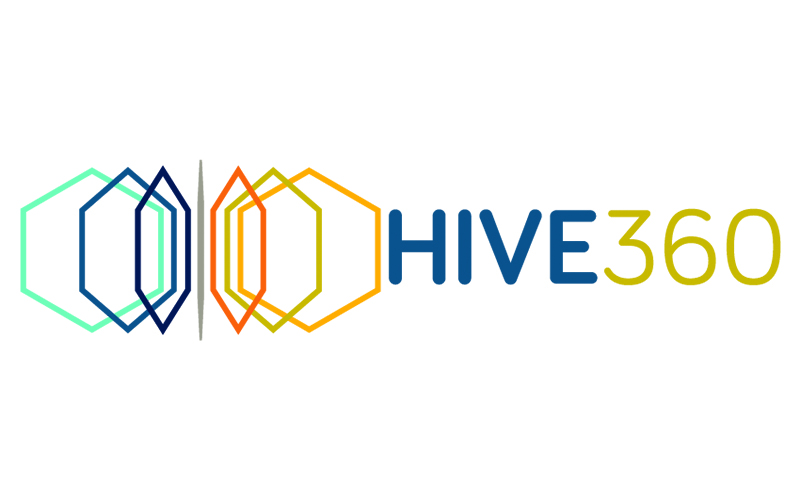Special Report - Payroll: Re-imagining payroll will protect agency profits

ADVERTISEMENT FEATURE: David McCormack, CEO of outsourced PAYE payroll specialists Hive360, believes strategic payroll is the profit-protecting solution.
Today’s world of work is placing unprecedented demands on agency payroll. Add to this the growing complexity of compliance, expansion of IR35 rules, and mounting pressure on agencies to look after workers’ welfare, now is the time to embrace a new, commercial approach using a strategic payroll solution - that also protects profits.
All change: April 2021
Workers providing similar services to employees, and who would therefore be classified as an employee if working directly for the client, pay similar tax and NI contributions. The government introduced IR35 rules to ensure fairness across all, and in 2017, implemented additional rules for ‘Off Payroll’ workers, which were rolled out to only the public sector.
But from April 2021, this will change. The classification of worker status will shift from the intermediary to the client, and the rules extend to the private sector – meaning organisations engaging workers through intermediaries must identify whether the worker is classified a direct employee for income tax purposes.
In part, the changes are designed to address concerns that some intermediaries are not complying with IR35 but reducing due payments of tax and NICs. Under the new rules, the business – or agency paying the intermediary – must deduct income tax and NICs from the fees paid to the intermediary, and account employers’ NICs, and apprenticeship levy if relevant, as if the fees were salary payments, to comply with IR35 regulations.
Standard IR35 rules will continue to apply to intermediaries providing services to private sector clients that are small or have no UK connection in a tax year.
Workers supply chain
Recruiters should start by defining their role in the labour supply chain role:
- Client: also known as the engager, hirer or end client, and the organisation which is or will receive the services of the worker/contractor. The client will need to make a status determination to identify if IR35 rules apply, and is responsible for advising the worker, agency or other labour provider if the rules apply and the reasons why. If there is no one else in the supply chain, the client will also be the fee payer.
- Agency: the employment/recruitment agency (or agencies, as there can more than one) that supplies a worker to a client, and may pay a worker’s intermediary (fee payer), depending on other parties in the supply chain.
- Fee payer: pays the worker, limited company or other intermediary. Is also directly above the worker’s limited company in the supply chain, and could be the client or agency. Is responsible for deducting tax and NI contributions, and paying them to HMRC, and should have a copy of the status determination from the client.
- Intermediary: usually the worker’s own personal service company, but could be a partnership or individual.
- Worker (contractor): the individual providing services to the client through an intermediary.
Who decides?
The client is responsible for establishing whether Off-Payroll rules apply based on a private company classification:
- Small/micro companies (less than two of: below 50 employees, turnover below £10m, net assets below £5.1m) – exempt and responsibility lies with the intermediary.
- Client medium/large companies (two or more of: above 50 employees, turnover above £10m, net assets above £5.1m) – the client is responsible.
Government guidance will help determine if IR35 rules apply – but they will if a worker provides services to a client through an intermediary and would be classed an employee if contracted directly.
What next?
To guarantee IR35 compliance, recruitment businesses can either:
- Do nothing, and expose the business to crippling fines and taxes;
- Carry on as they are, but let the fee payer deduct all appropriate tax and NI contributions;
- Only engage with suppliers not caught by IR35 and off payroll legislation;
- Convert all workers to in-house PAYE; or
- Outsource to a PAYE payroll solution provider.
Hive360
Outsourcing payroll is a strategic decision that will address wider policies including efficiency, cost saving, staff retention, productivity, employee engagement and wellbeing.
Hive360 provides compliant and reliable PAYE payroll support and employment administration that reduces overheads and improves operational efficiencies.
Hive360 falls outside of the Intermediary definition because:
- It is not an associated company of the client.
- None of its workers has any interest in its business (no shares).
- Its management and control are separate to and uninfluenced by the workforce.
- All workers are engaged under PAYE contracts (either of employment or service).
Unlike some outsourced payroll providers, Hive360 does not operate any form of tax avoidance or manipulation, which puts a business at ongoing risk. Anyone paid through Hive360 is done so under PAYE.
Added benefits
Recruiters outsourcing temporary workers’ PAYE payroll to Hive360 report savings of £100 or more per worker in the first year.
The Hive360 payroll solution includes tools that support employee engagement strategies, to deliver communication, wellbeing and lifestyle benefits, free of charge to the worker via our Engage app.
Engage includes 24/7 confidential access to counsellors and GPs, especially important at this time – during the first week of Covid-19 lockdown, we recorded an unprecedented 273% increase in demand for mental health support services, and 102% increase in the use of the GP service.
Communication with a workforce is essential, and typically clients using Engage record employee engagement levels of over 80%.
Hive360 is a specialist employee benefits and outsourced payroll provider.
For more information: www.hive360.com
Sponsored by:

